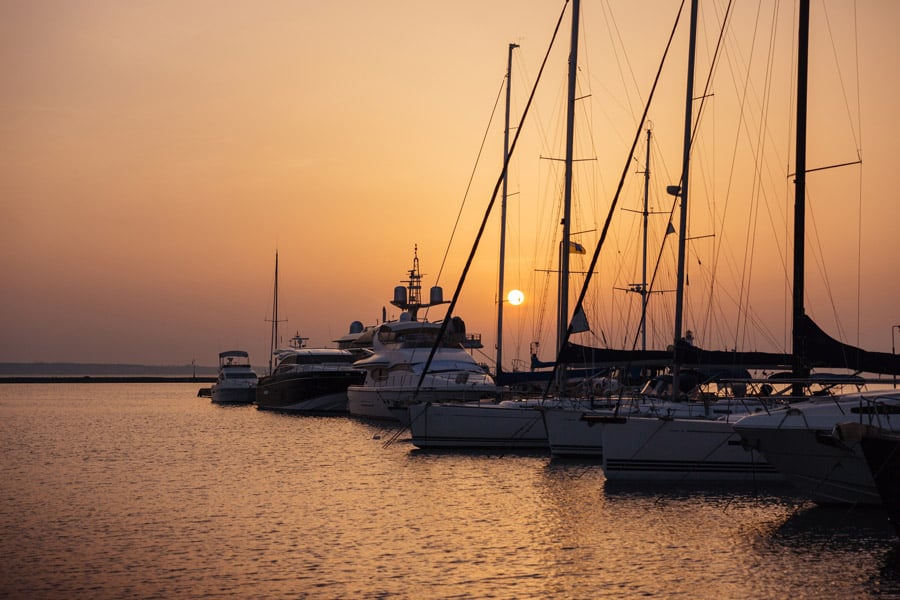
Your flights are booked, lodging arranged, and sunglasses purchased, but how to make those last-a-lifetime tropical vacation memories with the family? How about thinking outside the box (or should we say inside the boat) with something for which Waikiki is known around the world – sports fishing.
Sport or recreational fishing in Waikiki is a customizable angling experience that’s family-friendly (usually age 6 and up) and a chance to see deep sea creatures up close and personal; best of all, your quarry is edible, and you get to keep a portion of your catch. It is the best of both worlds with plenty of relaxation on the deck as well as heart-pounding moments of excitement reeling in the catch of the day.
Waikiki is home to numerous guided sports fishing charter companies, each unique and has a wide variety of pricing options and accommodations within walking distance of Waikiki Beach. All that is up to you is choosing the one which best suits your needs. Here is a list of some companies with the best reviews:
- Waikiki Sport Fishing
- Ruckus Sportfishing and Diving
- Magic Sport Fishing
- Island Charters Sport Fishing
- Sportfish Hawaii
- Wild Bunch Sport Fishing
WHAT CAN I EXPECT FROM MY DAY ON THE WATER?
Typically, deep sea fishing is an early morning event which can be anywhere from a half-day excursion to a multi-day expedition; it’s all up to you and your needs. If one of your vacation requirements is not having to set an alarm, then there are afternoon options which often carry the bonus of front row seats to an amazing Hawaiian sunset over the ocean.
Upon booking your trip, you should be given a meeting location and/or pick up point where you will be greeted by your guide(s). From there, you will be taken to your vessel, usually, a motorized boat specifically designed and outfitted for deep sea fishing and your comfort.
Your guides will issue the gear you will need (fishing rod, reel, lifejacket, etc.) and give some safety instructions along with an explanation of how to use the equipment and what to do when you get a fish on the line. With that out of the way, you can sit back, relax, and wait for the action.
Unless the fish are positively diving out of the water into the boat, downtime is plentiful. This can be a great opportunity to ask your guides any questions you might have or connect with friends, family, and potentially other guests. Keep in mind that your guide is always there to help.
Your trip may include meals and snacks at appropriate times but be sure to confirm this with your guide service upon booking your trip. You may need to pack a lunch and munchies. Also, if you would like your group to have the boat and guides to yourselves, this is an option most charter companies provide at a slight cost increase.
At the end of your day, you will disembark and be given your portion of the day’s catch if you booked with a charter company that includes this service.
WHAT IF I HAVE NEVER FISHED BEFORE?
Whether you are an experienced angler or the closest you have come to hooking a marlin is tossing a can of tuna in a grocery cart, sports fishing is an engaging and enjoyable pastime.
Remember that bit about asking your guide questions? They have seen it all and heard it all when it comes to ocean fishing, so don’t be afraid that you will look silly, that’s half the fun. You are certainly not the first novice client your guide has taken out.
Besides, that hilarious photo your teenager will take of you trying to hang on to your fish just might be the highlight of their vacation.
WHAT COULD POSSIBLY GO WRONG (AND HOW DO I KEEP IT FROM HAPPENING)?
1. You could get seasick – Unfortunately, seasickness does happen and can turn what was supposed to be a fun day into a miserable one. Thankfully, there are a number of ways to prevent this from ruining your outing.
Eating lighter, more mild food in the twelve hours before you embark on your voyage can be an easy way to stave off seasickness. So, maybe wait to try that super spicy curry until you get off the boat.
Another way to keep from going green around the gills is to take an over-the-counter motion sickness medication in conjunction with your milder diet. These two preventative measures can ensure that your trip isn’t spoiled by stomach upset. Though one common side effect of motion sickness medication can be drowsiness, so be sure to get a good night’s sleep.
To be on the safe side though, please remember this is a blog post, not medical advice. Go have a chat with your doctor if this is a major concern for you, as they are qualified to give you the best recommendations.
2. You could get cold – That’s right, despite being in the tropics and being able to wear that itsy-bitsy bikini on the beach, being on the ocean can mean cooler temperatures – by ten or more degrees. So, layers are the name of the game, especially if your trip is scheduled to depart early in the morning or return late at night.
It can definitely get hot in the middle of the day, so go ahead and wear the bathing suit, but slip on some shorts and take a light jacket of synthetic material. Synthetics like thin rain jackets or fleece dry quickly to keep you comfortable even when you encounter rain or sea spray.
3. You could get sunburnt – Sunburn is actually more likely to occur when you are out on the water than on land because of all that reflective ocean around you, and if you get wet, sunscreen can wash off quickly.
A hat and sunglasses are a must, both as sun protection, and to help out your eyes because you will be spending the day staring at sun glare on the water. Also, pack some sunscreen for any time you get wet, or your first coat wears off. You want to catch a lobster, not be one.
4. You could end up going for a swim, but only if you want to – If you would really like to go on your fishing adventure, but you can’t swim, and/or are frightened that you might slip into the drink, there is really nothing to worry about. Being out of the boat unintentionally is an extremely unlikely possibility. But if you aren’t convinced…
Remember that section about gear being given to you? Well, a piece of gear you can request or may be required to wear is a life jacket, AKA Personal Flotation Device. These are super buoyant vests you can cinch down as tight as you want, and they will pop you back up to the surface every time.
On many trips, your guides may give you the opportunity to swim in the warm, beautiful Pacific waters anyway, but if that’s not something you want to experience, let them know and they will give you the best, most specific advice on how to stay safe and dry on their boat.
FINAL TIPS AND TRICKS
Tips, like the monetary kind, otherwise known as gratuities are a part of any guiding industry. Remember that your guides aren’t making a very large portion of your trip fee. That goes to the company owner to pay for things like equipment, salary, gas for the boats, etc. Anywhere from ten to twenty percent of your trip cost is a normal tip, depending on your satisfaction level.
This is also why you usually will not be able to keep all you catch. Guides sell the fish as supplementary income, and this along with tips is assumed by the industry, so the base pay isn’t great as a fishing guide, though the job perks of fishing for a living definitely compensate.
If you want more information about what fish you might be catching, and the seasons specific fish will be around Waikiki, check out the Hawaii Division of Aquatic Resources website here for detailed species information. As a bonus, there is no license required for saltwater fishing, just bring yourself and some friends for the experience of a lifetime.
When choosing a charter company, make a list of expectations. Whether those are being able to take home a large share of the catch, having meals provided, or a low cost, decide which are most important to your needs and find companies which list those things.
Finally, don’t forget to have a blast! You have just found the perfect family activity that can be relaxing for adults, educational for kiddos, and exciting for everyone. See you on the water!

